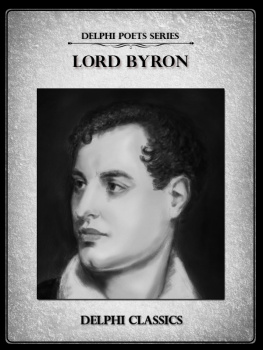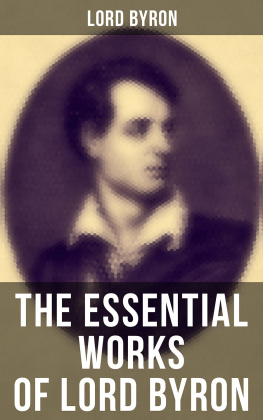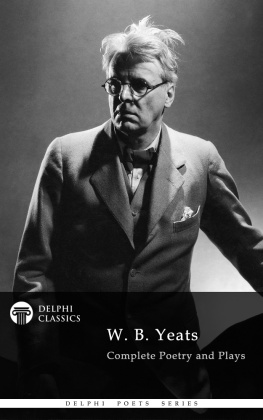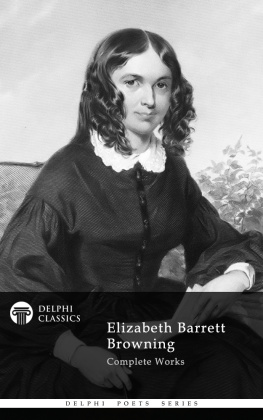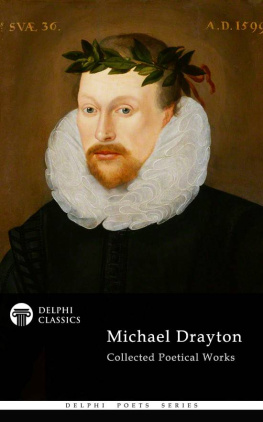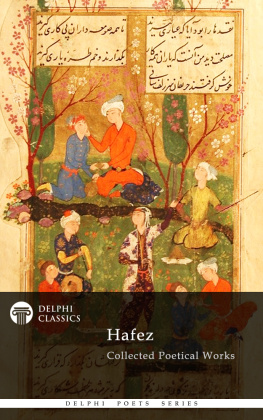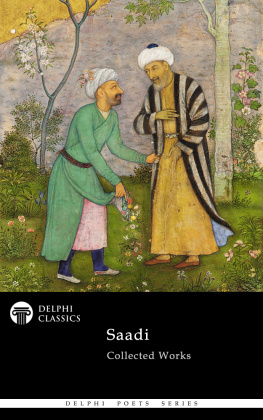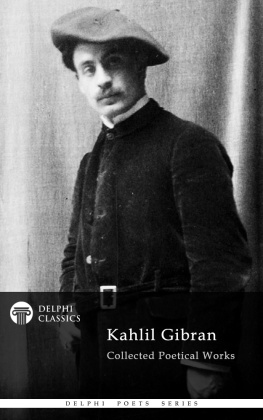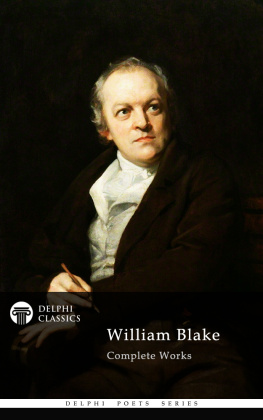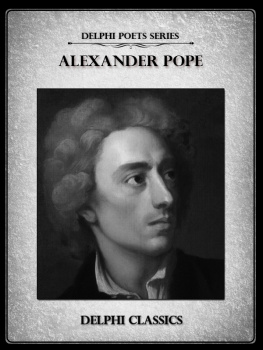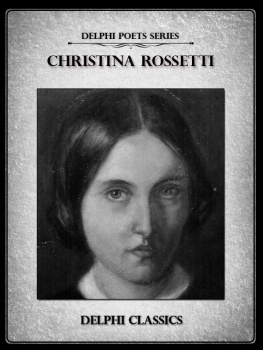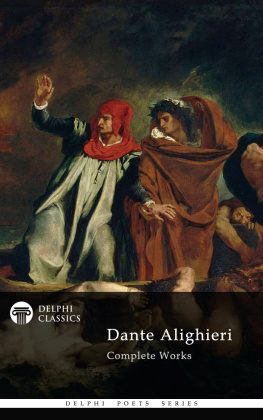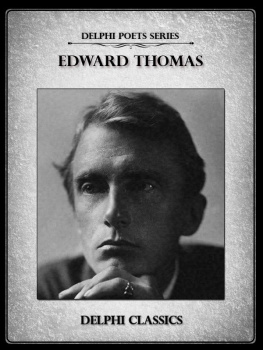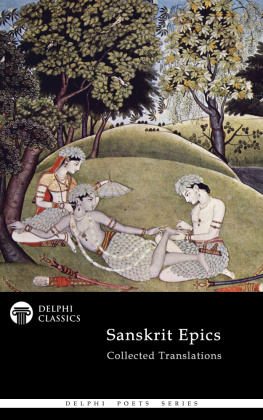

LORD BYRON
(17881824)

Contents

Delphi Classics 2012
Version 1


LORD BYRON

By Delphi Classics, 2012
NOTE

When reading poetry on an eReader, it is advisable to use a small font size, which will allow the lines of poetry to display correctly.
Interested in Lord Byron and Romantic poetry?
Then youll love these eBooks

For the first time in digital publishing history, Delphi Classics is proud to present the complete works of these Romantic poets.
www.delphiclassics.com
The Poetry Collections

Holles Street, Central London Byrons birthplace

The plaque commemorating his birthplace

Holles Street in 1775

Byron, aged 15
HOURS OF IDLENESS

Lord Byrons first volume of poetry was published in 1807, when the poet was only 19 years old. He had previously printed a volume under the title Fugitive Pieces the year before, but with the Reverend John Beechers objections to some of the poems, the volume was withdrawn. Then Byron privately printed Poems on Various Occasions , an expurgated version of Fugitive Pieces . Following the warm recpetion it received from friends, he later in the year released the volume under the new title Hours of Idleness .
At the time, Byron worte to a friend, In every Booksellers I see my own name and say nothing, but enjoy my fame in secret. The collection contains mostly short poems, many in imitation of classic Roman poets, and they received mixed reviews. One particularly scathing criticism in the Edinburgh Review spurred Byron to reply with the satire English Bards and Scotch Reviewers in 1809.

Captain John Mad Jack Byron, the poets father

Lady Catherine Gordon, the poets mother
CONTENTS

The first edition of the collection
HOURS OF IDLENESS
A SERIES OF POEMS ORIGINAL AND TRANSLATED
First published in 1807
Virginibus puerisqe canto. Horace, lib. iii, Ode 1.
He whistled as he went, for want of thought. Dryden.
PREFACE TO THE FIRST EDITION
In submitting to the public eye the following collection, I have not only to combat the difficulties that writers of verse generally encounter, but may incur the charge of presumption for obtruding myself on the world, when, without doubt, I might be, at my age, more usefully employed.
These productions are the fruits of the lighter hours of a young man who has lately completed his nineteenth year. As they bear the internal evidence of a boyish mind, this is, perhaps, unnecessary information. Some few were written during the disadvantages of illness and depression of spirits: under the former influence, Childish Recollections, in particular, were composed. This consideration, though it cannot excite the voice of praise, may at least arrest the arm of censure. A considerable portion of these poems has been privately printed, at the request and for the perusal of my friends. I am sensible that the partial and frequently injudicious admiration of a social circle is not the criterion by which poetical genius is to be estimated, yet to do greatly we must dare greatly; and I have hazarded my reputation and feelings in publishing this volume. I have passed the Rubicon, and must stand or fall by the cast of the die. In the latter event I shall submit without a murmur; for, though not without solicitude for the fate of these effusions, my expectations are by no means sanguine. It is probable that I may have dared much and done little; for, in the words of Cowper, it is one thing to write what may please our friends, who, because they are such, are apt to be a little biassed in our favour, and another to write what may please everybody; because they who have no connexion, or even knowledge of the author, will be sure to find fault if they can. To the truth of this, however, I do not wholly subscribe; on the contrary, I feel convinced that these trifles will not be treated with injustice. Their merit, if they possess any, will be liberally allowed; their numerous faults, on the other hand, cannot expect that favour which has been denied to others of maturer years, decided character, and far greater ability.
I have not aimed at exclusive originality, still less have I studied any particular model for imitation; some translations are given, of which many are paraphrasic. In the original pieces there may appear a casual coincidence with authors whose works I have been accustomed to read; but I have not been guilty of intentional plagiarism. To produce anything entirely new, in an age so fertile in rhyme, would be a Herculean task, as every subject has already been treated to its utmost extent. Poetry, however, is not my primary vocation; to divert the dull moments of indisposition, or the monotony of a vacant hour, urged me to this sin: little can be expected from so unpromising a muse. My wreath, scanty as it must be, is all I shall derive from these productions; and I shall never attempt to replace its fading leaves, or pluck a single additional sprig from groves where I am, at best, an intruder. Though accustomed, in my younger days, to rove a careless mountaineer on the Highlands of Scotland, I have not, of late years, had the benefit of such pure air, or so elevated a residence, as might enable me to enter the lists with genuine bards, who have enjoyed both these advantages. But they derive considerable fame, and a few not less profit, from their productions; while I shall expiate my rashness as an interloper, certainly without the latter, and in all probability with a very slight share of the former. I leave to others virum volitare per ora. I look to the few who will hear with patience, dulce est desipere in loco. To the former worthless I resign, without repining, the hope of immortality, and content myself with the not very magnificent prospect of ranking amongst the mob of gentlemen who write;my readers must determine whether I dare say with ease, or the honour of a posthumous page in The Catalogue of Royal and Noble Authors,a work to which the Peerage is under infinite obligations, inasmuch as many names of considerable length, sound, and antiquity, are thereby rescued from the obscurity which unluckily overshadows several voluminous production of their illustrious bearers.
Next page
